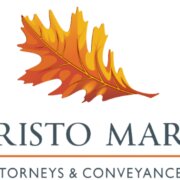Best Antitrust Lawyers in South Africa
Share your needs with us, get contacted by law firms.
Free. Takes 2 min.
Or refine your search by selecting a city:
List of the best lawyers in South Africa
About Antitrust Law in South Africa
Antitrust law in South Africa, also known as competition law, aims to promote fair competition in the market and prevent anti-competitive practices. The main legislation governing antitrust in South Africa is the Competition Act, which prohibits practices such as price-fixing, abuse of dominance, and collusion.
Why You May Need a Lawyer
You may need a lawyer in cases where you are being investigated for anti-competitive behavior, facing a complaint from a competitor, or need advice on mergers and acquisitions that may raise antitrust concerns. A lawyer can help navigate the complex legal landscape and ensure compliance with the relevant laws.
Local Laws Overview
In South Africa, the Competition Act establishes the Competition Commission as the primary enforcement agency for antitrust matters. The Act prohibits anti-competitive agreements, abuse of dominance, and mergers that substantially lessen competition. The Competition Tribunal is responsible for adjudicating disputes and imposing remedies.
Frequently Asked Questions
1. What is considered anti-competitive behavior in South Africa?
Anti-competitive behavior in South Africa includes practices such as price-fixing, bid-rigging, market allocation, and abuse of dominance. These practices are prohibited under the Competition Act.
2. What are the penalties for violating antitrust laws in South Africa?
Violations of antitrust laws in South Africa can result in significant fines, penalties, and even imprisonment for individuals involved in anti-competitive behavior. Additionally, companies may face legal action and sanctions.
3. How can I report a potential antitrust violation in South Africa?
You can report a potential antitrust violation to the Competition Commission through their website or by contacting their offices. They will investigate the matter and take appropriate action if a violation is found.
4. Is it necessary to notify the Competition Commission before completing a merger?
Yes, under the Competition Act, certain mergers and acquisitions must be notified to the Competition Commission before they are completed. Failure to do so can result in legal action and sanctions.
5. Can I challenge a decision of the Competition Tribunal in court?
Yes, decisions of the Competition Tribunal can be challenged in the Competition Appeal Court or the Supreme Court of Appeal. It is advisable to seek legal representation to navigate the appeal process effectively.
6. How long does an antitrust investigation typically take in South Africa?
Antitrust investigations in South Africa can vary in length depending on the complexity of the case. Some investigations may be resolved in a few months, while others may take several years to complete.
7. Can individuals be held personally liable for antitrust violations in South Africa?
Yes, individuals who engage in anti-competitive behavior can be held personally liable under the Competition Act. This may include fines, penalties, and criminal prosecution.
8. Are there any exemptions or defenses available in antitrust cases in South Africa?
There are certain exemptions and defenses available under the Competition Act, such as legitimate business justifications or the efficiency defense for mergers. It is essential to seek legal advice to determine if any exemptions apply to your case.
9. What is the role of the Competition Commission in enforcing antitrust laws?
The Competition Commission is responsible for investigating anti-competitive behavior, reviewing mergers and acquisitions, and enforcing compliance with the Competition Act. They have the authority to impose penalties and remedies for violations of antitrust laws.
10. How can I stay compliant with antitrust laws in South Africa?
To stay compliant with antitrust laws in South Africa, it is essential to have a thorough understanding of the Competition Act and seek legal advice when engaging in activities that may raise antitrust concerns. Implementing compliance programs and training for employees can also help prevent violations.
Additional Resources
For further information on antitrust in South Africa, you can visit the website of the Competition Commission or seek guidance from legal experts specializing in antitrust law. The South African Competition Tribunal also provides resources and guidelines on competition law in the country.
Next Steps
If you require legal assistance in antitrust matters in South Africa, it is advisable to consult with a qualified antitrust attorney who can provide personalized advice and representation. They can help navigate the legal process, protect your interests, and ensure compliance with antitrust laws.
Lawzana helps you find the best lawyers and law firms in South Africa through a curated and pre-screened list of qualified legal professionals. Our platform offers rankings and detailed profiles of attorneys and law firms, allowing you to compare based on practice areas, including Antitrust, experience, and client feedback.
Each profile includes a description of the firm's areas of practice, client reviews, team members and partners, year of establishment, spoken languages, office locations, contact information, social media presence, and any published articles or resources. Most firms on our platform speak English and are experienced in both local and international legal matters.
Get a quote from top-rated law firms in South Africa — quickly, securely, and without unnecessary hassle.
Disclaimer:
The information provided on this page is for general informational purposes only and does not constitute legal advice. While we strive to ensure the accuracy and relevance of the content, legal information may change over time, and interpretations of the law can vary. You should always consult with a qualified legal professional for advice specific to your situation.
We disclaim all liability for actions taken or not taken based on the content of this page. If you believe any information is incorrect or outdated, please contact us, and we will review and update it where appropriate.
Browse antitrust law firms by city in South Africa
Refine your search by selecting a city.
















